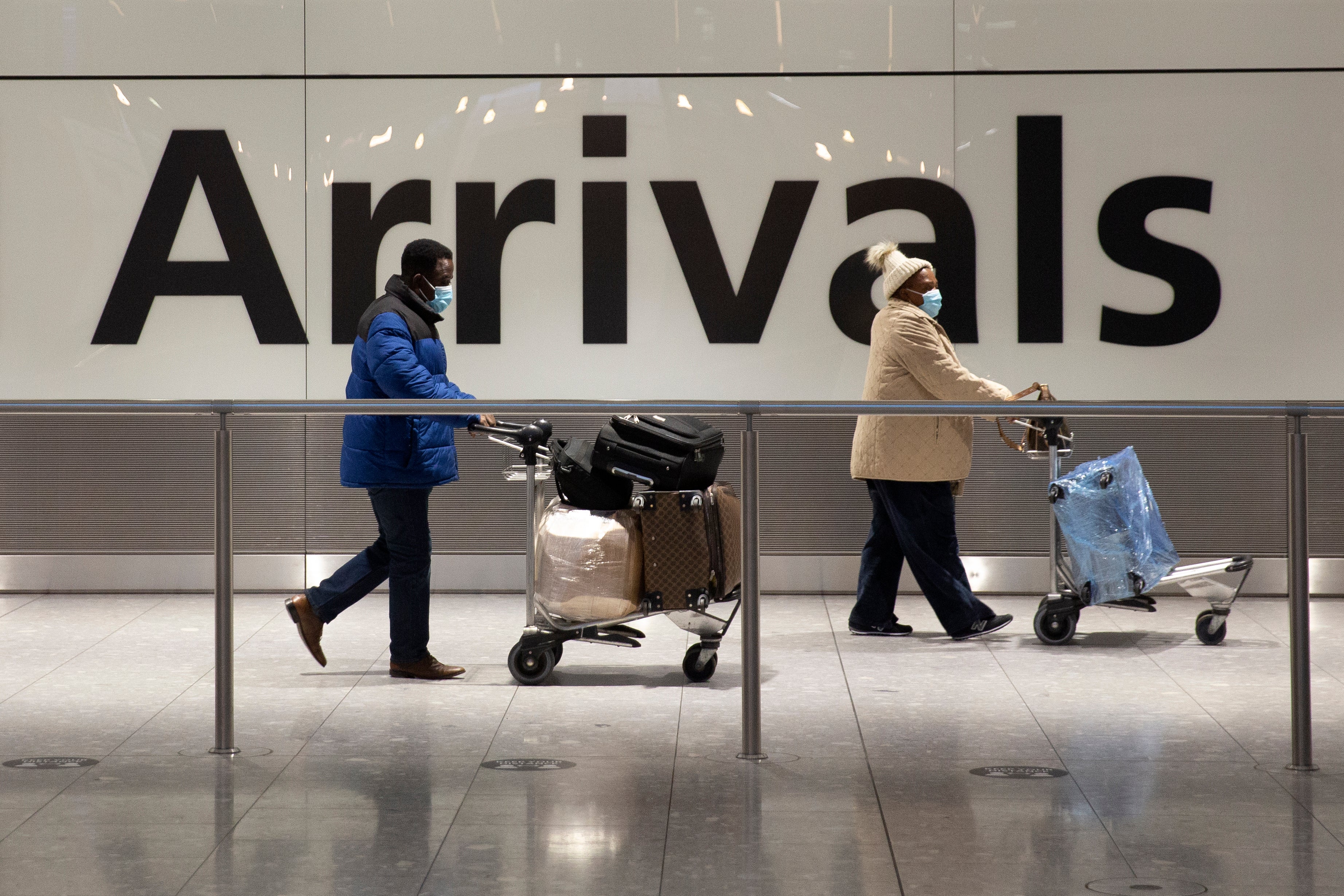UK eyes quarantine hotels for travelers to curb variants
Britain appears ready to order some travelers coming in from abroad to isolate in hotels in an attempt to stop the import of new virus variants

Your support helps us to tell the story
From reproductive rights to climate change to Big Tech, The Independent is on the ground when the story is developing. Whether it's investigating the financials of Elon Musk's pro-Trump PAC or producing our latest documentary, 'The A Word', which shines a light on the American women fighting for reproductive rights, we know how important it is to parse out the facts from the messaging.
At such a critical moment in US history, we need reporters on the ground. Your donation allows us to keep sending journalists to speak to both sides of the story.
The Independent is trusted by Americans across the entire political spectrum. And unlike many other quality news outlets, we choose not to lock Americans out of our reporting and analysis with paywalls. We believe quality journalism should be available to everyone, paid for by those who can afford it.
Your support makes all the difference.Britain appears ready to order some travelers arriving from abroad to isolate in hotels at their own expense in an attempt to stop the import of new virus variants.
Vaccines Minister Nadhim Zahawi said there would be an announcement Tuesday on plans for tighter border measures. The BBC reported that U.K. citizens and residents arriving from most of southern Africa and South America, as well as Portugal, will have to self-isolate in a hotel for 10 days at their own expense.
Quarantine hotels have been used to limit virus transmissions in countries including Australia, New Zealand, China, India and Singapore but the practice has not been widely adopted in Europe.
Zahawi did not give details of the planned the announcement but said tightening border rules was “the right thing to do, because … as we vaccinate more of the adult population, if there are new variants like the South African or the Brazilian variants, we need to be very careful.”
Opposition politicians and public health officials have criticized Britain's Conservative government for not closing the country’s borders earlier in the pandemic.
Current lockdown rules, imposed to slow the spread of a new, more transmissible virus variant first identified in southeast England, bar Britons from taking foreign holidays, although essential travel is allowed.
People arriving from overseas are already required to self-isolate in Britain, but enforcement is patchy.
Former Health Secretary Jeremy Hunt said the biggest problem was that many people already in the U.K. do not comply with self-isolation orders.
“I think the elephant in the room in this is not the 10,000 or so people who arrive in the U.K. every day, it is the 30,000 people in the U.K. already who are asked to quarantine by Test and Trace and are not doing so,” Hunt told the BBC.
He backed calls for a self-isolation payment from the government so people exposed to the virus or infected did not lose income by staying at home.
“We may also need to enforce more compliance, but I think you can only do that if you are making people a reasonable offer to support them financially for any losses they may have from having to stay home,” Hunt said.
People arriving in the U.K. from abroad also must show they have tested negative for COVID-19. Britain recently banned direct flights from South Africa, Brazil and Portugal — and barred entry to travelers from there and some nearby countries — in response to new variants of the virus.
The U.K. will soon become the fifth country in the world to record 100,000 COVID-19 deaths, after the United States, Brazil, India and Mexico — all of which have much larger populations than Britain’s 67 million people. As of Monday, the U.K.’s official coronavirus death toll was 98,531.
British authorities are banking on a successful vaccination program to help the country suppress the outbreak and ease its current lockdown. So far more than 6.5 million people have received the first of two doses of a vaccine, and the government aims to give 15 million people, including everyone over 70, a jab by Feb. 15.
___
Follow all of AP’s pandemic coverage at https://apnews.com/hub/coronavirus-pandemic, https://apnews.com/hub/coronavirus-vaccine and https://apnews.com/UnderstandingtheOutbreak